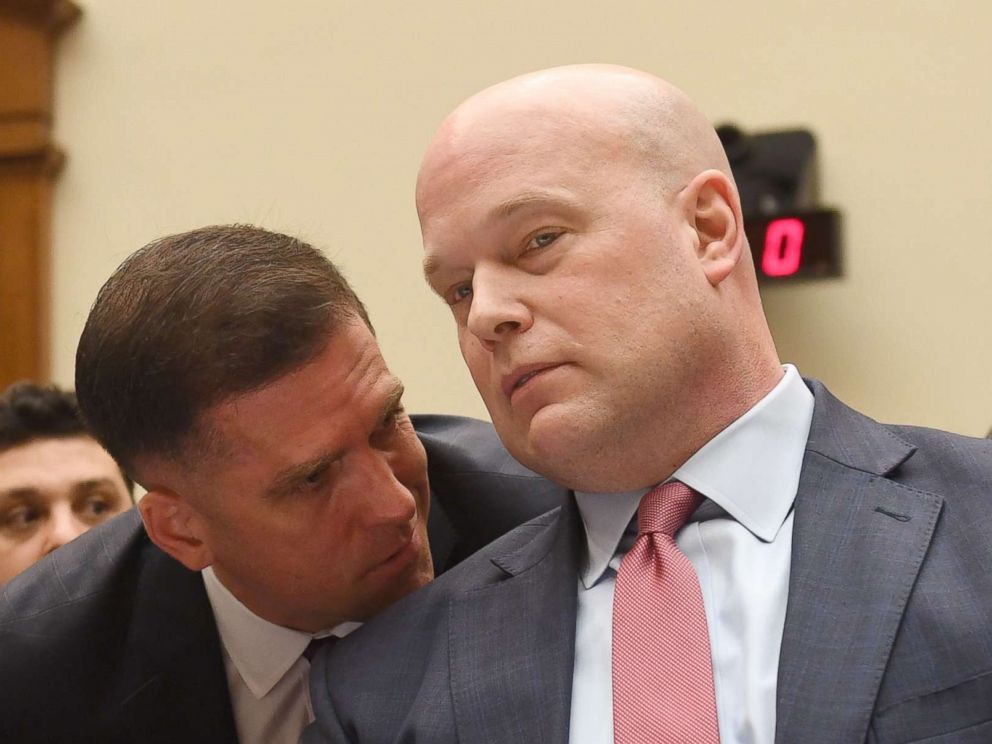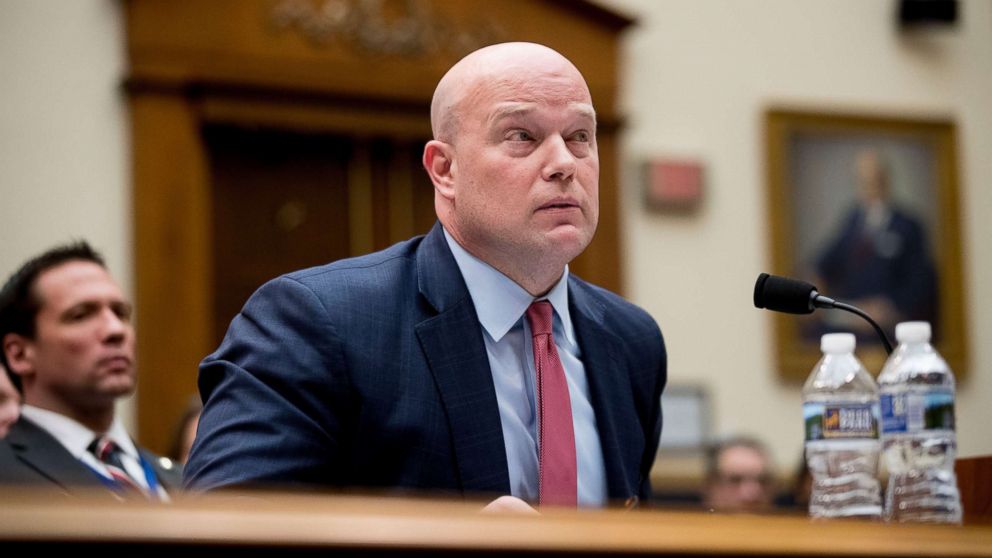5 key takeaways from acting AG's fiery battle with Democrats
Friday’s fiery House Judiciary Committee hearing, with acting Attorney General Matt Whitaker in the witness chair, was filled with testy moments, political theatrics and repeated cries of “point of order.”
But even as Whitaker enters his final days serving atop the Justice Department, his sparring with House Democrats did yield some new and substantive insights.
Here are five key takeaways.
Whitaker denied he's talked to Trump about Mueller probe
Whitaker flat-out denied that he has spoken with President Donald Trump about special counsel Robert Mueller’s investigation into Russian interference in the 2016 election.
Early on in Friday’s hearing, the committee’s chairman, Democratic Rep. Jerry Nadler of New York, asked Whitaker whether “at any point” since being briefed on the Mueller probe he “communicated anything you learned in that briefing about the investigation to President Trump?” Whitaker ultimately answered the question, saying he has “not talked to the President of the United States about the special counsel’s investigation,” nor has he “talked about the special counsel’s investigation with senior White House officials.”
Whitaker refused to say whether he's talked to Trump about Cohen case
At the same time, Whitaker was unwilling to say whether he has spoken with Trump about offshoot investigations potentially tied to him that federal prosecutors are now undertaking in New York. When pleading guilty in November 2018 to several charges against him, Trump’s former fixer and attorney, Michael Cohen, directly implicated Trump in alleged schemes, ahead of the 2016 presidential election, to silence women claiming to have had affairs with him.
But when Rep. Val Butler Demings, a Florida Democrat, later asked Whitaker if he “talked to President Trump at all about the Southern District of New York’s case involving Michael Cohen,” Whitaker refused to offer an answer, saying he would not discuss his private conversations with Trump.

Whitaker claimed he has 'not interfered' with Mueller
Congressional Democrats have worried that Whitaker, who publicly criticized Mueller’s investigation before joining the Justice Department, may have tried to influence the probe once he became acting attorney general. But during his testimony on Friday, Whitaker made clear that, as he put it, "I have not interfered in any way with the special counsel's investigation." Under oath, he said that he has never denied funding requests from Mueller and has not blocked any actions contemplated by Mueller. He called Mueller an “honest” broker who, as far as he knows, is not impaired by any conflict of interest, as Trump has previously alleged. “I have been on the record about my respect for Bob Mueller and his ability to conduct this investigation,” Whitaker said.

Whitaker said asylum seekers may not get access to legal assistance
Despite a new Trump administration policy that sends asylum seekers in the United States back to Mexico to wait for their cases to be processed, Whitaker suggested those asylum seekers may not have access to legal assistance as they would if they were inside the United States. “Will the Department of Justice ensure that asylum seekers have access to counsel in Mexico in order to allow them to prepare for their hearings?” Rep. Veronica Escobar, D-Texas, asked Whitaker. In response, he said he would follow relevant “policies” but added, “I cannot make an assurance, especially what happens in a foreign country.” Nadler later suggested that failing to provide legal assistance to asylum seekers -- wherever they are -- could violate the U.S. Constitution.
Whitaker: Trump Justice Department might not protect LGBTQ individuals from discrimination
Whitaker suggested that the Trump administration Justice Department, at least while under his direction, would not take action on its own to help protect lesbian, gay or transgender individuals from discrimination. He refused to say whether he personally believed federal law should protect such individuals from discrimination, insisting the Justice Department merely enforces the law and that it’s up to Congress to expand protections for transgender individuals and others. “If Congress wants [federal law] to extend to transgender people, you can change the law,” he told Rep. Debbie Mucarsel-Powell, D-Fla. “We cannot read into something that is not in the law.” Nevertheless, he said he believes “discrimination of any kind should not happen.




